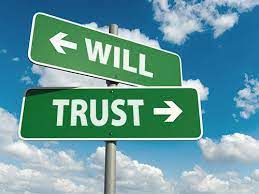Purchasing a home can be a stressful process as it is likely to be the most costly and mentally draining investment you will ever make. Even in the midst of an outburst, with thorough research and dedication, you can get the keys to your ideal home. However, we’ll assist you on your way to becoming a homeowner with the requirements you need, including your income rate and the kind of credit score you have to buy a house.
Requirements to Buy a House
Purchasing a home might take only a few days if you make a payment, or it can take years if you factor in the time it takes to prepare for a down payment and pick where you want to live. It’s not uncommon for buyers in today’s competitive real estate market to submit many offers on a single property before the seller accepts only one of them. The procedure will generally take you two to six months if you already have your money saved and have a strong notion of the neighborhoods and types of homes you want. Inquire with a local real estate agent for a more precise schedule of current market trends in your area.
However, here are the needed requirements you need even as a first-time home buyer buying a house.
#1. Recognize your motivation for purchasing a home.
Buying a home is a significant investment that should not be taken lightly. You may come to regret your decision if you don’t know why you want to buy a house. You should also make a list of your personal and financial objectives.
#2. Examine your credit report.
Checking your credit score can help you figure out what financing possibilities are available to you; lenders use it (among other things) to decide loan pricing and whether or not you’ll be able to repay your mortgage. The stronger your credit history, the greater your chances of getting the best terms and prices on a loan.
#3. Make a budget for housing.
Setting a realistic budget for your new house will help you determine what you can afford and the total cost of ownership. Keep in mind that the purchase price isn’t everything. To establish what you can afford, take into account all of your other expenses. Check to see if your monthly budget can accommodate the mortgage payment as well as other expenses like daycare, tuition, utilities, groceries, and more.
#4. Put money aside for a down payment.
You’ll need to save at least 20% of the home’s purchase price for a down payment to avoid private mortgage insurance or PMI. Some lenders provide mortgages with lower down payments and no PMI, but you should expect to pay a higher interest rate. So you know how much you’ll need, look into the down payment requirements for the loan you want.
#5. Look into getting a loan.
Preapproval for a mortgage is beneficial when making an offer on a home since it provides you with a better idea of how much you can pay. To maximize your chances of acquiring a cheap interest rate, shop around with at least three lenders or a mortgage broker.
#6. Engage the services of a real estate agent.
To a large extent, a professional real estate agent will save you time and money by assisting you in finding your perfect property and bargaining on your behalf with the seller. Before deciding on a real estate agent, contact several and request a meeting to discuss your requirements.
Learn about a real estate agent’s track record, understanding of your desired neighborhood, and workload before hiring them. You don’t want someone who is constantly on the go.
#7. View a variety of properties
Visiting homes in person—with necessary safeguards in the event of a pandemic—and getting to know the community and its attractions isn’t a substitute for looking at listing images. Let your real estate agent know what kinds of homes you wish to see, or look for them yourself on the internet.
Keep your options open so you can jump on a fantastic home when it comes on the market, especially in a seller’s market. The sooner you see it and make an offer, the better your chances of outbidding other purchasers.
#8. Make a proposal
Understanding how to make a compelling offer on a home will increase the likelihood that the seller will accept it, putting you one step closer to obtaining those desired house keys.
When you’ve found “the one,” your real estate agent will assist you in putting together a complete offer package, which will include your offer price, preapproval letter, evidence of finances for a down payment, and terms or contingencies.
#9. Get your house inspected.
A home inspection can provide you with a good idea of the property’s mechanical and structural problems. The results of the house inspection will assist you in deciding how to proceed with the closing. If your contract includes a contingency, you may need to ask the seller for repairs or elect to back out of the purchase.
Your real estate agent can make suggestions for house inspectors, but you should do your own research before hiring one. Look over the home inspection checklist to see what’s covered and what isn’t.
#10. Repairs and credits should be negotiated.
It’s possible that your home inspection report will identify big or small flaws. Major faults will almost certainly need to be resolved before your mortgage lender approves your loan, whereas smaller concerns may usually wait until you take possession of the property.
Enlist the support of your agent to negotiate with the seller. Request that the seller either complete the repairs or provide you with a credit at closing. Some sellers would not agree to extensive repairs, which is why a home inspection contingency is a good option—it allows you to back out of the transaction if the house isn’t in perfect condition.
#11. Financing should be secured
To get final loan approval, you must keep your finances and credit in order during the underwriting process. You won’t want to open new credit lines or make any big transactions until the paperwork is signed once you’re ready to close.
Respond quickly to requests for more evidence, and double-check your loan estimate for accuracy so there are no surprises later. As your lender completes the underwriting process, you may be required to provide more paperwork, such as:
- Statement of account
- Returns on taxation
- Additional evidence of earnings
- Major deposits into your bank account are explained in a gift letter or written statements.
#12. Go over everything one last time.
The last walk-through allows you to inspect the property before it is yours. Before the house becomes your responsibility, you have one last chance to examine it, ask questions, and resolve any unresolved issues.
Bring your home evaluation form as well as additional documents, such as repair invoices and receipts for any work the owner performed, to confirm that everything was completed as agreed and that the home is ready to move into.
#13. Close in on your residence
Closing on your house is complete if all conditions are met, the final walk-through is satisfactory to you, and the closing agent has given the all-clear. Your lender will give you a “clear to close” status on your loan in this final phase.
Examine the closing disclosure thoroughly before closing and compare it to the loan estimation to ensure that the closing fees and loan terms are identical. Inquire about your loan and remedy any mistakes. After you’ve signed all of the paperwork, the house will be yours and you’ll get the keys.
Income Requirements to Buy a House
When you buy a house, lenders look at a lot more than your wage. Your debt-to-income (DTI) ratio and capacity to make mortgage payments are given more weight in the requirements than your annual income when you want to buy a house. They’ll also take into account your credit score and the amount of money you have set aside for a down payment.
Getting a preapproval is a good place to start, as it’s one of the requirements needed to buy a house, especially if you’re not sure if you can acquire a mortgage on your current income. A preapproval letter from a mortgage lender specifies the amount of money you are eligible to borrow. Lenders look at your income, credit history, and assets when they give you a preapproval. This enables the lender to provide you with a very accurate estimate of how many houses you can afford.
When you start looking for a property, a preapproval will give you a budget to work with. Once you’ve established your budget, you can start looking at homes for sale to get a sense of what they’re selling for. If you locate enticing selections within your price range, it’s a positive sign that you’re ready to buy.
So, when you’re looking for a loan to buy a house, what requirements do lenders check for? To begin, they’ll examine your monthly income as well as your debt-to-income ratio.
#1. Monthly Earnings
If you’ve recently moved into a higher-paying job, you may want to wait a year or two before applying for a mortgage, depending on the home price you’re looking for. Your lender may be ready to lend you more money if you continue in your higher-paying job for a longer period of time.
When it comes to calculating your income if you want to buy a house, there are requirements that lenders don’t overlook. They could also look into alternative sources of income, such as:
- Commissions
- Overtime
- Benefits and perks for military personnel.
- Payments of alimony
- Social Security income and investment income
- Payments for child support
Your lender will choose which types of income are acceptable to your requirements, in addition to your income payments, when you want to buy a house. However, the most critical factor is that the revenue you disclose is reliable. Your lender is unlikely to evaluate your alimony arrangement if it states that you would only get payments for one year.
#2. Debt-to-Income Ratio
This is a measure of how much debt a person has compared to how much money
When determining how much money you can borrow, lenders look at your debt-to-income (DTI) ratio. Your debt-to-income ratio is calculated by dividing your total monthly recurring debt payments by your total monthly household income. Your DTI ratio is expressed as a percentage by your lender.
Lenders use your DTI ratio to determine whether you can afford to take on more debt. Most lenders prefer DTI ratios of 50% or less. You may have problems acquiring a loan if your DTI ratio is greater than 50%. You can borrow more money if your DTI ratio is lower.
If your debt-to-income ratio is too high, start looking for ways to reduce your monthly budget or raise your revenue.
#3. Credit score
An income credit score is also one of the requirements needed to buy a house. Your credit score is a number between 300 and 850 that indicates to lenders how reliable you are when borrowing money. It’s likely that you have a great credit score because you pay your bills on time and stay out of debt as much as possible. It’s possible that you have a bad credit score because you consistently miss payments or overdraw your accounts. With a high score, you’ll be able to get lower interest rates and more lender options. You may have difficulty securing a loan if your credit score is low.
When applying for a traditional loan, lenders aim for a credit score of 620 or above. You may be offered a higher interest rate if your credit score is below 620.
#4. Down Payment Amount
The amount you put down on your mortgage is referred to as your down payment. Your down payment is due at closing and is typically the most expensive closing expense you’ll encounter. Down payments are expressed as a percentage of the total loan amount by lenders. It is also on record as one of the requirements to buy a house along with your income payment.
Despite the fact that a lender examines your revenue stream when you buy a home, there is no set income criterion. Preapproval for a mortgage is a fantastic way to figure out how much you can afford to spend on a home. A pre-approval is also a good idea because it will show sellers that you can receive a loan.
It’s vital to remember that income is one of the requirements needed to buy a house, but not the only one, which lenders evaluate when deciding whether or not you qualify for a loan. Your debt-to-income ratio, down payment, and credit score all play a role in the requirements to get a loan to buy a house.
Credit Requirements to Buy a House
You don’t need flawless credit to buy a house, as one of the requirements. In fact, you may not even require excellent credit. The credit score required as one of the requirements to buy a house is determined by the type of loan you are applying for. When it comes to buying a home with bad credit, keep in mind that FHA loans accept credit scores as low as 500. If your credit score is under 580, you’ll need a 10% down payment to qualify. Borrowers with credit scores of at least 580 only need to put down 3.5 percent.
The disadvantage of having bad credit is that you’ll have to pay a higher interest rate. Most purchasers with poorer credit scores, on the other hand, purchase now and remortgage later when their credit improves.
How much you should know about credit score qualifications for each of the various loan programs is outlined below.
#1. Loans from the Federal Housing Administration (FHA) (Score: 580)
FHA loans have the lowest credit score requirements of any loan kind. For an FHA loan, most lenders accept FICO scores of 580 or above. With this program, you only need a 3.5 percent down payment to purchase a home.
The Federal Housing Administration insures FHA loans. Mortgage lenders are protected by this insurance, which allows them to lend to customers with lower credit scores and smaller down payments.
What’s the drawback? FHA loans need both upfront and annual mortgage insurance premiums, which are frequently paid for the life of the loan.
#2. Conventional Loans (Score: 620)
Conventional loans also allow for a 3 percent down payment with a credit score of 620. However, for buyers with less than 20% down, the cost of private mortgage insurance (PMI) might make traditional loans unattractive.
Your PMI costs are determined by your down payment and credit score. PMI rates can be expensive for typical borrowers with a 3-5 percent down payment and a credit score in the low 600s. As a result, FHA financing is sometimes less expensive for borrowers with fair credit scores.
#3. VA Loans (Veterans Administration) (Score: 580-620)
The Department of Veterans Affairs, which oversees VA loans, does not have a credit score requirement. Individual lenders are in charge of this. For a VA loan, most lenders want a minimum FICO score of 620, however, some will go as low as 580.
You must be an active-duty service member, veteran, surviving spouse, or member of the Reserves or National Guard to qualify for a VA loan. Borrowers that are VA-eligible enjoy extremely cheap mortgage rates and don’t have to pay PMI on a regular basis (only a one-time, upfront funding fee).
#4. USDA Loans (Score: 640)
There is no official minimum credit score for the USDA zero-down loan program. Most lenders, however, require a FICO score of at least 640 to be considered. You must also earn a low-to-moderate income in your area. And the house you’re buying has to be in a US Department of Agriculture-designated “rural” area.
#5. Jumbo Loans (Score: 680-700)
Any mortgage that exceeds the conforming loan limit, which is now $647,200 for a single-family house in most locations, is referred to as a jumbo loan. A jumbo loan requires a better credit score because you’re borrowing more money. Although each company is free to set its own jumbo loan standards, many want to see a FICO score of 700–720. (though some may go as low as 680). For a jumbo loan, you’ll normally need a 10% to 20% down payment. This, too, varies depending on the lender.
What Factors Go Into Determining Your Credit Score?
You can interpret the information in your credit report by the FICO credit score model. Some aspects of your credit history are more important than others, and they will influence your overall score more. The following factors contribute to your FICO score:
- Payment history accounts for 35% of your final score.
- There is owning of 30 percent of your overall score in total sums outstanding.
- Credit history accounts for 15% of your entire score.
- New credit accounts for 10% of your entire score.
- The type of credit you’re using accounts for 10% of your total score.
The majority of your credit score is determined by your payment history and the quantity of debt you have vs. the amount of credit accessible to you, according to this calculation. Your FICO score is made up of 65 percent of these two factors.
Focus on these areas first to put yourself in the best position to qualify for a mortgage. Keep your credit usage ratio under 30% by comparing the entire amount of credit you have available to your present liabilities.
Credit History vs. Credit Score
Your credit score is a single number that shows your creditworthiness as a borrower. Your credit score is a breakdown of your credit history and also one of the requirements that can help you borrow more easily if you decide to buy a house, but it doesn’t reflect reality.
For a number of factors, credit scores might be low. Maybe you’d rather pay cash than use credit, maybe you’re too young to build a credit history, or maybe you have a lot of debt.
Mortgage lenders recognize that a low credit score does not always imply that you are a high-risk borrower. That is why, rather than just your FICO score, they look at your whole credit history, as reflected by your credit report, as one of the requirements to buy a house. And if your credit score is poor, a “respectable” credit history may be enough to get you qualified.
Purchasing a Home With Poor Credit
It is not the same to have bad credit as it is to have no credit. Collections, write-offs, and late and missed payments all contribute to a low credit score (“bad credit”) score, which will result in your loan being declined.
If you have a low credit score as a result of missing loan payments or keeping all of your credit card balances maxed up, a lender is unlikely to ignore these concerns.
To buy a house, you’ll actually have to take some time to prepare or boost your credit score as one of your requirements.
Do You Need a Licence to Buy a House?
A real estate license is required in order to purchase a home since you can use it to find great deals, connect with other licensed agents, and increase your income through commissions.
What Requirement Do You Need to Buy a House?
You need the following requirements to buy a house as a first-time buyer. And they are:
- Recognize your motivation for purchasing a home.
- Examine your credit report.
- Make a budget for housing.
- Put money aside for a down payment.
- Look into getting a loan.
- Engage the services of a real estate agent.
Is It Better to Buy a House or a Flat for Investment?
In general, houses have greater capital gains than apartments because the space tends to increase in value over some time, while apartments typically have very little space, so their value won’t increase as quickly as houses’.
How Much Money Should I Save before Buying a House?
If you’re getting a mortgage, save 25% of the house’s sale price in cash for a down payment, closing costs, and relocation costs. To cover all the costs of buying a $250,000 home, you may spend more than $60,000.
How Much Is a Downpayment on a House?
Lenders typically need 20% down. If you pre-qualify, several lenders accept down payments of less than 20%. Negotiate or choose a lender with a low down payment.
Can I Buy a House with a Credit Score of 450?
If you want to buy a home with a loan from the Federal Housing Administration (FHA), you need a credit score of at least 500. For the minimum down payment of 3.5%, you need at least 580. But to get a loan from some lenders, you need a score between 620 and 640.
What Credit Score Is Needed Buy a House?
When you apply for a conventional loan, you should have a credit score of at least 620. If your score is below 620, lenders may not be able to give you a loan or they may have to charge you a higher interest rate, which can make your monthly payments more expensive.
Related Article
- How To Buy A House With Bad Credit: Detailed Guide In 2023
- WHAT CREDIT SCORE DO YOU START WITH: All You Should Know
- Secondary Mortgage Market: Step By Step Guide On How It Works(Opens in a new browser tab
- No Down Payment Mortgage: Getting a Mortgage With No Down Payment In 2023
- What Credit Score Do You Need to Buy a House: Best US Practices in 2023






